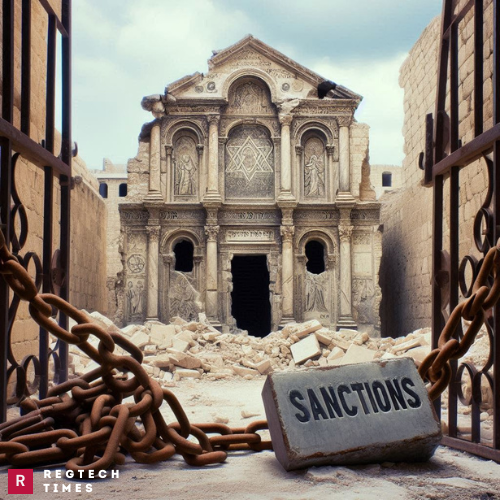A group of American Jews, who fled Syria decades ago, have made an emotional appeal to the White House. They are asking the U.S. government to lift strict sanctions on Syria, which they say are stopping them from restoring their ancient synagogues and reviving their shattered community in Damascus.
For many of these individuals, the memories of their homeland remain strong. They remember the narrow streets of the Jewish Quarter, the centuries-old synagogues, and the sense of belonging they once had. However, war, destruction, and harsh restrictions have made it nearly impossible for them to return, even just to restore the places that hold deep meaning for them.
Their main concern is that the historic Jewish sites in Damascus are crumbling. Without the ability to invest in repairs and preservation, these sacred places might be lost forever. But with U.S. sanctions in place, they say they are unable to send funds or start rebuilding efforts.
War and Sanctions Left a Deep Scar
Syria once had a thriving Jewish community that stretched back nearly 3,000 years. Over time, political tensions and restrictions pushed most of them to leave, especially in the late 20th century. By the 1990s, nearly all had fled to the U.S., Israel, or other countries. Today, only seven elderly Jews are known to still live in Damascus, and the community is on the verge of disappearing completely.
HRW Urges World to Lift Sanctions Blocking Syria’s Essential Services
The civil war that broke out in 2011 devastated the entire country. Entire neighborhoods were reduced to rubble, and Syria’s rich cultural heritage suffered massive destruction. During the war, an attempt was made to save valuable religious artifacts from one of the oldest synagogues in the country, but the effort failed, and much of the site was later destroyed.
On top of the war’s destruction, years of strict U.S. sanctions have made life in Syria even harder. These sanctions were meant to punish the former Syrian government for its human rights abuses and violent crackdowns. But now that the old leadership has been removed, many believe it is time for these restrictions to be lifted so that the country can start to rebuild.
For those who fled decades ago, seeing the condition of their old neighborhoods is heartbreaking. They visited their former homes and places of worship, only to find them in ruins. What was once a lively community with homes, schools, and markets is now a shadow of its past. The sight of children begging in the streets and buildings covered in bullet holes was overwhelming for them.
Seeking Help From U.S. Leaders
Hoping to find a way forward, a small group of these exiled Syrian Jews met with U.S. officials in Washington, D.C. They spoke with members of the White House and the State Department, sharing their concerns about the crumbling Jewish landmarks and the overall humanitarian crisis in Syria. Their request was simple: allow them to help restore their religious and cultural sites without facing financial restrictions.
Germany Leads EU Discussions on Easing Sanctions on Syria Amid Crisis
They explained that they are not seeking political involvement. Their goal is to rebuild places that are deeply important to them. They compared their vision to the Jewish communities in Morocco, where synagogues and Jewish history are preserved within a Muslim-majority nation. They believe a similar future could be possible for Syria if given the chance.
Some policymakers remain hesitant. Even though the old leadership has fallen, there is still uncertainty about the future. While the new government has promised to protect minority communities, many still fear instability and revenge attacks.
Despite these challenges, the group remains hopeful that their plea will be heard. They believe that if the U.S. government allows them to invest in reconstruction, it could help bring back a small piece of their lost heritage. For them, the crumbling walls of their synagogues are not just stones and bricks—they are memories, history, and a connection to their ancestors. And they are determined to save them before it is too late.


